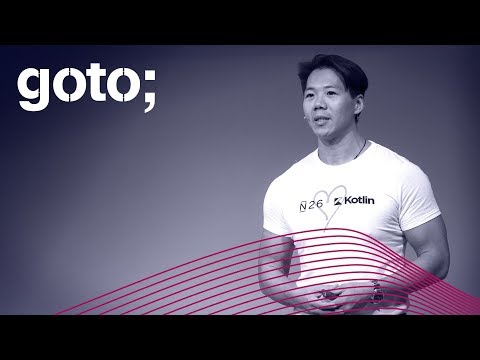Talking with Tech Leads - Patrick Kua
Moving from an engineer to a tech lead. What is a Tech Lead? Surprises and struggles.
Speaker
- Patrick Kua Chief Scientist, former CTO of N26
Video
Source
Notes
- Talking with Tech Leads (the book)
- Tech Lead course
- The Retrospective Handbook
- “You want to be promoted” vs. “You are ready for a promotion”.
-
Hard things like expectations from other people.
- Tech lead is not a promotion. It is a role change.
The path:
- Junior Software Engineer
- Software Engineer
- Senior Software Engineer
- Tech Lead - seems like the next level in the career ladder, but it is not really.
There are 3 different ways to progress:
- Individual contributor (70-80% time spent on “executing, doing” e.g. designing, testing, coding)
- Management (70-80% time spent on “Managing the system” - supporting people, planning, budgeting, organising, add new skills to the team)
- Technical Leader (70-80 % of the time “Leading Technical Topics and teams”, aligning team, technical risk management, technical vision, tech debt management, growing technical knowledge )
They all need differnt skilset.
“A Tech Lead is a software engineer, responsible for leading a development team, and responsible for the quality of its technical deliverables”
-
Developer, Leadership, and Architecture Skills
-
Tech leads deal directly with code about 30% of their time (coding or reading code)
Recommended Books
- Getting to Yes: Negotiating Agreement Without Giving In by Roger Fisher, William L. Ury, Bruce Patton.
- The Power of Positive Leadership: How and Why Positive Leaders Transform Teams and Organizations and Change the World by Jon Gordon
- Emotional Intelligence 2.0 by Travis Bradberry, Jean Greaves, Patrick M. Lencioni
- The Coaching Habit: Say Less, Ask More & Change the Way You Lead Forever by Michael Bungay Stanier
- Thanks for the Feedback: The Science and Art of Receiving Feedback Well by Douglas Stone, Sheila Heen
- Crucial Conversations: Tools for Talking When Stakes Are High by Kerry Patterson, Joseph Grenny, Ron McMillan, Al Switzler, Laura Roppe
- Presentation Patterns: Techniques for Crafting Better Presentations by Neal Ford, Matthew McCullough, Nathaniel Schutta
- The 7 Habits of Highly Effective People: Powerful Lessons in Personal Change by Stephen R. Covey
- The Busy Manager’s Guide to Delegation (Worksmart Series) by Richard Luecke, Perry McIntosh
- Great Motivation Secrets of Great Leaders by John Baldoni
- Nonviolent Communication: A Language of Life by Marshall B. Rosenberg, Arun Gandhi
- Influence: The Psychology of Persuasion by Robert B. Cialdini
Surprises
- Feeling Alone (outside)
- Uncertainty (there are no right answers, binary habit, imperfect information)
-
People are puzzling (people are unique, different strengths, archetypes, but no stereotypes!)
- Lucia Payo
- When you have too much on your plate, instead of working hard to do them, you need to stop and plan.
- Try to delegate more.
-
Being patient. (You can’t go against the flow of the organization. Wait for the opportunity.)
- Develop Others
- Two techniques: Tell or Delegate
Tell => Sell (Why should they do the thing, motivate them) => Particiapte (Work with them) => Delegate
- Situational Leadership Model
- Skill
- Motivation
- Urgency
-
Strengthfinder 2.0 by Tom Rath
- BCG Research (2017) The Mix That Matters
- The Mix That Matters (pdf) Innovation Through Diversity
- Positive correlation with innovation revenue
- Check 6 elements, but only 4 were found having a significant impact
- Gender
- Age (does not really matter)
- Country of origin
- Academic Background (does not really matter)
- Industry
- Career Path
- The Importance x Urgency matrix the Eisenhower Matrix
5 items
- Tech Lead is a role change
- Others have been on this journey (find your support group)
- It requires leadership skills
- There are many resources available
- Move from being a “Maker” to become a “Multiplier”.

